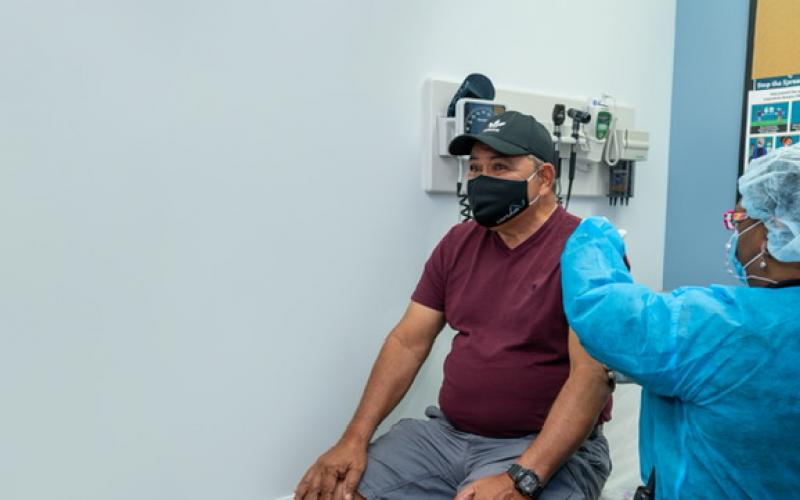The Best Time to Get a Flu Shot and the Benefits
Influenza is a common respiratory infection whose effects on our lives vary significantly from year to year in both the number of people who get sick and the degree to which they do so. The most important way to fight the flu is to get an annual vaccination.
Working closely with the federal government and other organizations around the world, manufacturers create vaccines each year based on the flu strains expected to be most prominent in the next flu season.
Typically, the flu season begins in the fall and peaks in the winter or early spring. According to Nathan Newman, M.D., F.A.A.F.P., Managing Partner for Conviva Care Services, in Texas the flu season began in September, will peak in January and February, and extends into April. Texas has recorded several cases already as the flu season gains momentum.
“This year and every year, flu shots are extremely important, and I encourage everyone (over 6 months of age) to get one,” says Dr. Newman. “It absolutely reduces the opportunity of getting the flu, reduces the severity of the disease, reduces hospitalizations, and reduces the possibility of death.”
Each year anywhere from 12,000 to 52,000 Americans die from the influenza virus, and when layered with the additional threat from COVID-19, vaccinations are by far the best way to minimize health issues in the 65 and over senior population.
Board-certified in Family Practice and Geriatrics, Dr. Newman says some seniors are in the high-risk category because they have a chronic disease such as a heart problem, diabetes, COPD, asthma, kidney or liver disease or cancer. “If members of the senior population get the flu it can damage their organs that are already compromised by a chronic illness, and that makes fighting off other illnesses even more difficult,” said Dr. Newman. “Most of us have had the flu before and gotten better, but we can never lose sight that this virus can be deadly. If you add an infection such as the flu, people can get much sicker and their organs will fail much easier.”
“The flu can co-exist with COVID-19 because they’re two different types of respiratory viruses, so we strongly recommend getting the flu vaccine even if you have COVID-19 or have had it in the past,” Dr. Newman said. Likewise, the flu vaccine and the COVID-19 vaccine can be administered in the same visit.
A major focal point of Conviva’s clinical care model is its preventive approach to medicine. “Conviva puts a lot of effort into early diagnosis to detect and help prevent the spread of cancer or diabetes, and early testing is the key focus,” said Dr. Newman. “Finding health issues early is a great benefit to all our patients, and the flu vaccine certainly falls into line very well with the prevention of illness.”
ABOUT CONVIVA CARE CENTER®
Conviva Care Center is a senior-focused, value-based primary care organization that strives to reinvent excellence in healthcare by embracing meaningful patient relationships and a preventive and holistic approach to healthcare leading to optimal health outcomes. With more than 100 convenient locations throughout Texas (Corpus Christi, El Paso and San Antonio) and Florida (Broward County, Daytona Beach, Jacksonville, Miami-Dade County, Palm Beach County and Tampa/Gulf Coast), the vast community of Conviva Care Centers is comprised of a multi-disciplinary team of more than 300 primary care physicians and over 800 affiliated specialists that provide a wide range of vital healthcare services that patients require daily, including the advantages of senior care activity and wellness centers and 24/7 on-call providers. The success of Conviva is measured by its patients’ clinical outcomes and long-term health benefits. To learn more, visit ConvivaCareCenters.com, or call 1-833-CONVIVA.

